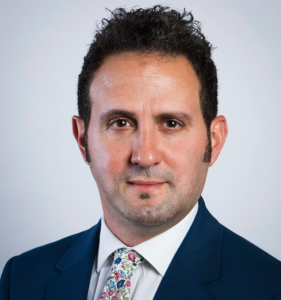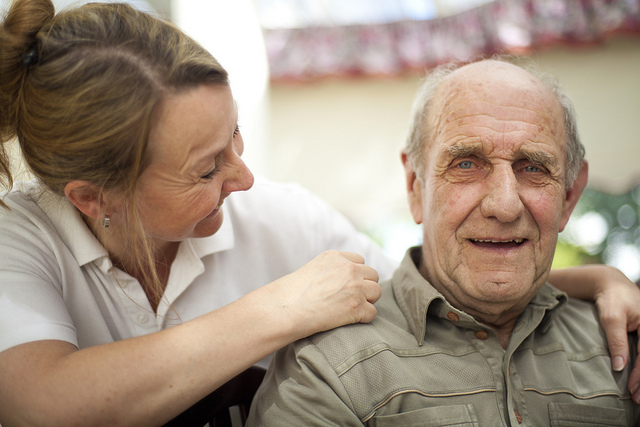Brighton and Hove City Council is to put up the amount that it charges people for care by about 2 per cent from April.
The council also plans to pay care providers, such as care home operators, 3 per cent more in the 2021-22 financial year.
Proposals to pay higher fees and to charge more were approved at a meeting of the council’s Health and Wellbeing Board on Tuesday (26 January).
A report to the board, which includes representatives of the Brighton and Hove Clinical Commissioning Group (CCG), said that the council paid external providers about £102 million a year for about 3,500 packages of care.
Of those, about 2,350 people were cared for at home and about 1,150 were in care homes.
Those receiving care included older people, adults with physical disabilities, mental health difficulties and learning disabilities.
The report said: “This funding will have an impact in ensuring that some of the most vulnerable members of our community in Brighton and Hove receive good-quality effective care and support services and will contribute to reducing health inequalities.
“An uplift in fees will also provide support for an increasingly fragile market (both locally and nationally) and demonstrates a commitment to provide support for both service users and some of the lowest-paid members of the local workforce.”
The report also said: “Public finances are under increasing pressure but this needs to be balanced with the need to manage and sustain the provider market to support the increasing complexity and demand and to comply with the duties placed on the council by the Care Act 2014 to meet the needs of those requiring care and support and to ensure provider sustainability and viability.”
The council will pay a basic weekly fee to care home operators of £600, up from £582, while standard nursing home fees will rise from £747.56 to £783.92.
The council will charge £129 a night for in-house residential care, or £903 a week, up from £126 a night, or £882 a week.
And the council will charge £19.70 a month for the Standard CareLink Plus service from April, up from £19.30 a month this year.
A report to the board said that the alarm service was “well-used and welcomed by vulnerable people in the city”.
It added: “This preventive service can often reduce the need for additional care services.”

While some people are exempt from charges or pay a reduced rate, the higher CareLink fee would affect about 600 people the council said.
Labour councillor Nick Childs said that the council should cap the proposed increase in charges at the rate of inflation – 0.6 per cent.
Councillor Childs said that 2 per cent was more than three times the rate of inflation and would affect hundreds of people as they struggled to cope in a harsh economic climate.
People with savings of more than £23,250 have to pay their own care home fees but Councillor Childs said that the threshold was low and many people would end up struggling financially.
He said: “The last year has been extremely hard on all residents and particularly those who are vulnerable, those who need care and their carers.
“It is important the council recognises the extraordinary impact of the pandemic on households when reviewing care and other charges.”

Councillor Childs compared the planned changes with the council’s proposed 15 per cent increase in the charge for residents’ parking permits, describing the rise as “punitive”.
He was particularly concerned about hourly rates for home care and support for people paying means-tested charges. These are due to go up from £26 to £27 an hour.
The board was told that in-house care charges for people who have come out of hospital are free for the first six weeks.
Green councillor Sue Shanks, who chairs the Health and Wellbeing Board, asked Councillor Childs to keep the parking permits out of the health discussion.
She asked how many people were affected by the changes. The board was told that more than a third of the 2,350 people who receive care at home paid no charge.
More than half of users paid between £50 and £70 a week towards their care costs and just 8 per cent paid the full amount for means-tested care at home.

Councillor Shanks said: “Personally, I don’t think that’s a punitive charge. In terms of 40p a month, it doesn’t seem very punitive.
“Of course, individuals are suffering in this – and the council’s budget has been very badly affected as well.
“For me, the main problem of not increasing our charges now is we may have to increase them more in the future.”
Conservative councillor Samer Bagaeen asked about the implications for the budget and was told that a 2 per cent increase in charges would bring in £18,000.
The Greens and Conservatives rejected a move by Councillor Childs to limit the increase to 0.6 per cent.










That will very my council tax up again then for the adult social care portion. Cheers.
Councillor Childs as usual seems to have no clue on detail and can’t even look up inflation properly – that rate is an old one! Funny how he had no problem with Labour putting the charges up by more last year….
How does this compare with other council’s around the country?